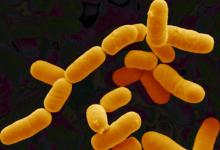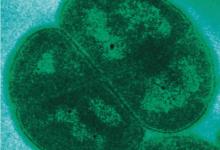Probiotics, stress, and the gut-brain axis
- 30 August 2011
- John Holden
New Irish research shows probiotic bacteria may help reduce anxiety, stress and depression, writes John Holden.
The ‘gut-brain axis’ is the term used by gastroenterologists and neuroscientists to describe the strong communication links between the organ that decides what we eat and the organ where that cream pie eventually ends up. For the layman, communications between the stomach and the brain don’t go much further than the shame sometimes felt after a snackbox at 2am.
Investment in 'knowledge economy' beginning to pay dividends?
- 26 August 2011
- John Holden
With the opening of UCD’s brand new science centre next month, it’s fair to say that real progress has been made in the decade long pursuit of a ‘knowledge economy’ in Ireland, writes John Holden.
Terms like ‘Ireland Inc’ and the ‘knowledge economy’ understandably get on some people’s nerves. They have become clichés of the highest order as well as reminders of the Fianna Fáil-led governments that brought us to our economic knees.
The incalculable value of maths
- 19 August 2011
- John Holden
Poor success rates in Leaving Cert maths show an almost native incapacity to engage with the subject. Teaching methods aside, the general public’s fear of mathematics is an issue that needs to be overcome if post primary students are not to follow suit, particularly when so much interesting stuff is happening at third level. By John Holden.
The science of rioting
- 15 August 2011
- John Holden
As Britain comes to terms with the worst riots seen there for decades, John Holden looks at some of the theories bandied about among psychologists and scientists to try and explain ‘mob mentality’.
From the schoolyard to the streets of the major metropolitan city, group behavior has its own crazy way of reminding humanity of our animalistic origins. With Britain’s riots now easing, the rush to explain such unexpected behaviour is on, with biological, psychological and geographical theories all in the media.
A fertile ground for prejudice?
- 29 July 2011
- John Holden
Passive smoking may cause mutations in sperm
- 21 July 2011
- John Holden
Studies on mice by the International Agency for Research on Cancer suggest that males exposed to passive smoke can cause mutations in the DNA of their sperm and such genetic deformities could then be passed onto their children. John Holden reports.
Smokers do not have it easy. Between price hikes, advertisement bans and unrelenting scientific research into the harmful effects of tobacco, it is hard not to feel some sympathy for those addicted to one of the difficult habits to kick known to man.
Who needs Atlantis?
- 18 July 2011
- John Holden
We don’t need to be inventing mythical islands in the Atlantic Ocean to make it interesting. There is a wealth of undiscovered biological phenomena off Ireland’s west coast which, until now, was yet to be looked into. Last week a group of Irish and English scientists set off in to the middle of the ocean, 3000 metres below sea level to the mid Atlantic ridge. John Holden reports.
Finding life in all the wrong places
- 8 July 2011
- John Holden
You don’t need to go into space to find some remarkable living creatures who make Bear Grylls look like a pansy. In fact simple life can live in the most bizarre conditions, writes John Holden.
Extremophiles are simple life forms, usually bacteria, found in places that often lack some of the basic constituents previously thought essential for life to exist.
The combination of improved research methods and ever advancing technologies is now showing forms of life in some of the most bizarre places.










